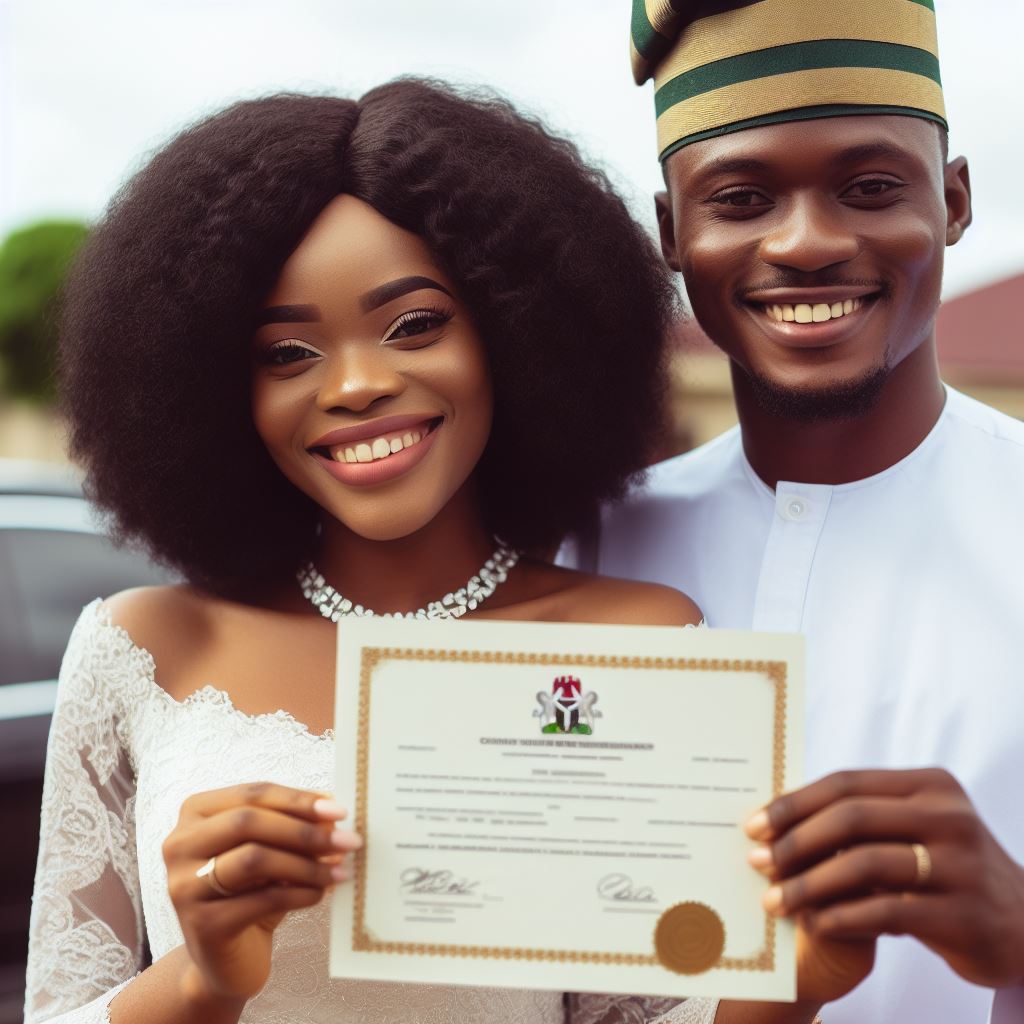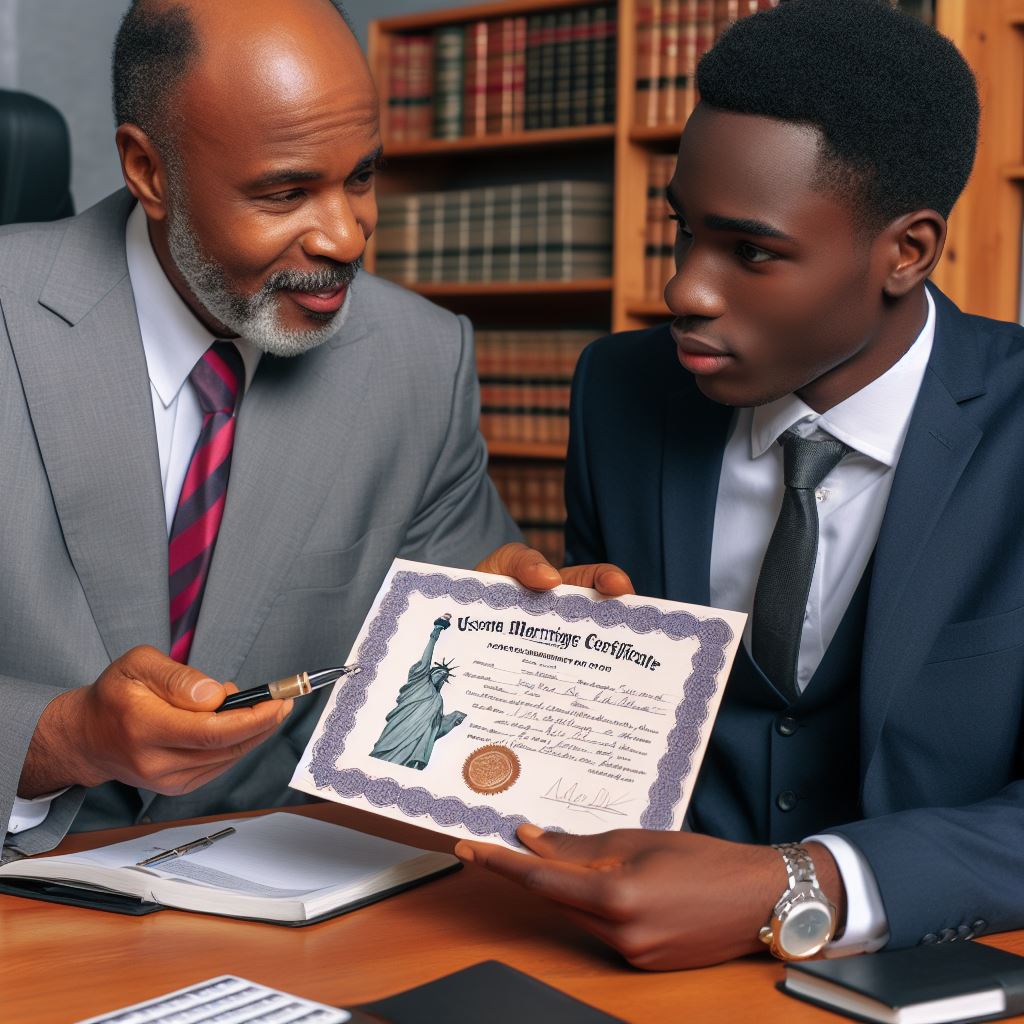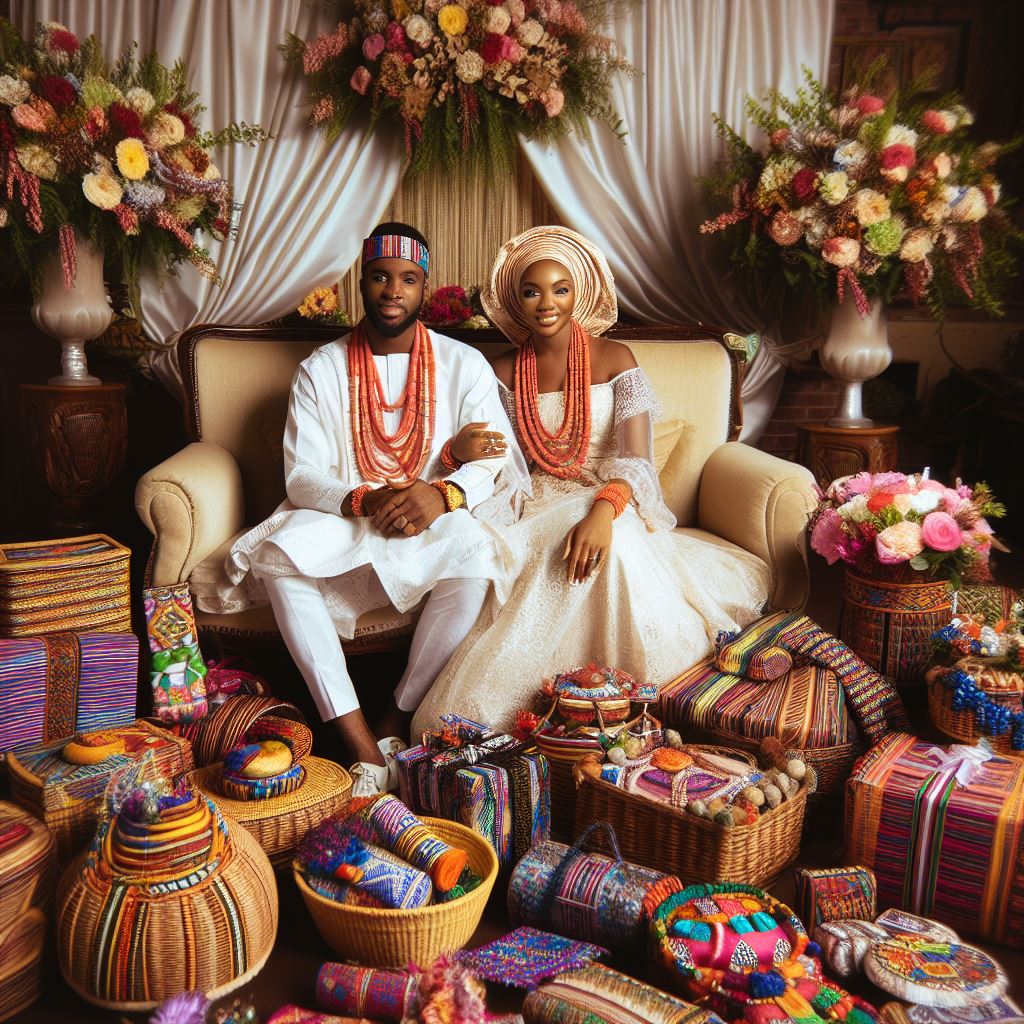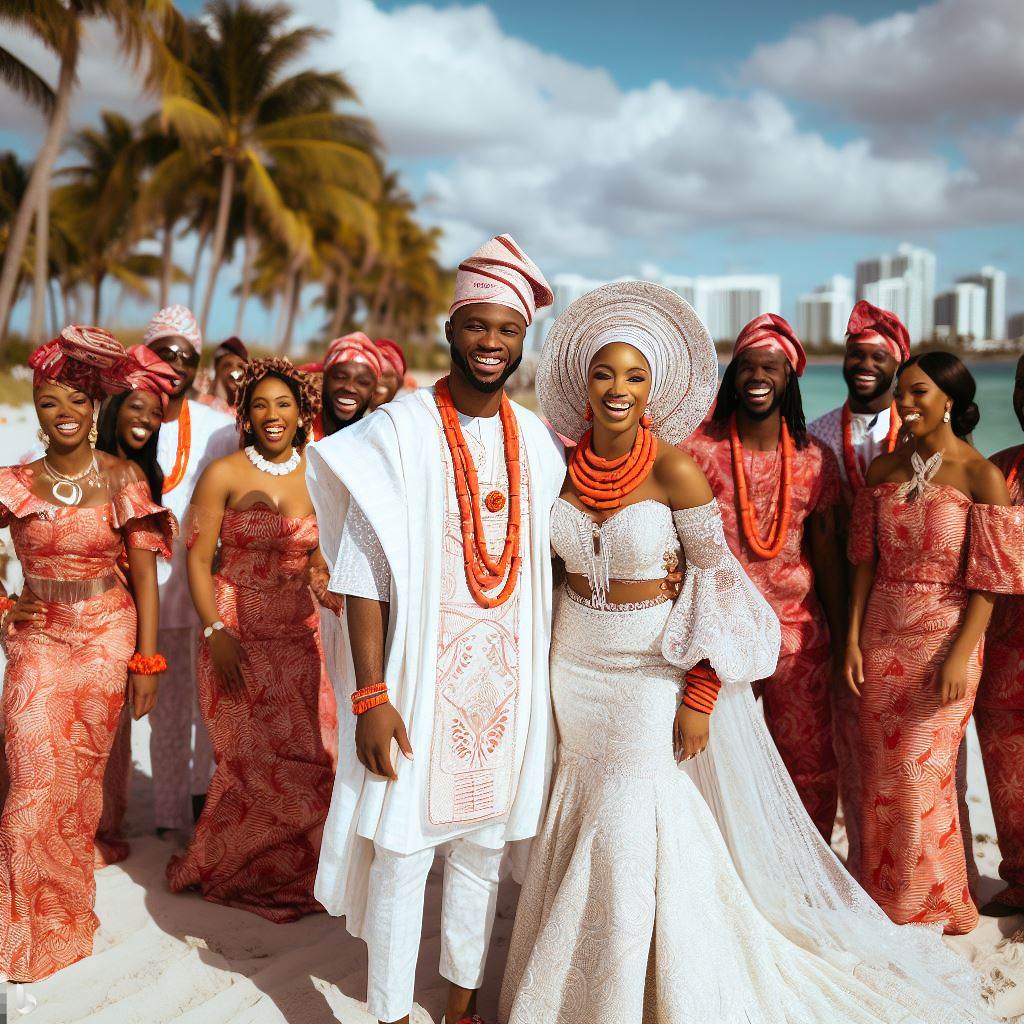Introduction
Nigerian marriage customs reflect forms of vibrant traditions, fostering a captivating cultural mosaic.
A. Importance of Marriage in Nigerian Culture
Marriage isn’t merely a union of two individuals but a merging of families, cultures, and legacies.
B. Thesis Statement: Marriage Forms in Nigeria
Marriage traditions in Nigeria encapsulate profound cultural narratives, embodying a wealth of societal customs and heritage.
Marriage Forms in Nigeria Reflect:
- Diverse Ethnic Rituals: Various ethnic groups in Nigeria boast distinct marriage customs, offering a glimpse into their unique heritage.
- Traditional Ceremonies: Elaborate ceremonies, including Yoruba’s engagement rites or Igbo’s wine-carrying rituals, symbolize familial bonds and unity.
- Role of Families: Families play a pivotal role, from matchmaking to elaborate negotiations, showcasing the communal fabric of Nigerian society.
- Symbolism and Significance: Each ritual holds deep symbolism, representing values, beliefs, and the spiritual essence of Nigerian communities.
In this section, we’ll unravel the intricate layers of Nigerian marriage forms, offering insights into the nation’s diverse cultural tapestry.
Read: Intricacies of the Nigerian White Wedding Ceremony
Traditional Nigerian Marriage Forms
A. The concept of arranged marriages
- Historical Background: Arranged marriages in Nigeria have a rich history, dating back centuries. Elders often played matchmakers, considering compatibility.
- Role of Parents and Extended Family: Parents and relatives hold a pivotal role in arranging marriages. They ensure harmony and compatibility.
- Significance of Dowry and Bride Price: In arranged marriages, the dowry, or bride price, is a crucial tradition. It symbolizes respect and commitment.
B. The practice of polygamous marriages
- Deeply Rooted Tradition: Polygamy is deeply ingrained in Nigerian culture. Historically, it signified a man’s wealth and social status.
- Reasons for Multiple Marriages: Men often take multiple wives for various reasons, including procreation, expanding their family, and social prestige.
- Challenges and Benefits of Polygamy:
- Challenges:
- Jealousy and conflicts among wives.
- Financial strain on the husband.
- Ensuring fairness and equality among wives.
- Complex family dynamics.
- Jealousy and conflicts among wives.
- Benefits:
- A larger support system within the family.
- Potential for more children and heirs.
- Strengthening social bonds within the community.
- Economic advantages, as wives often contribute to family income.
- A larger support system within the family.
Traditional Nigerian marriage forms reflect the enduring influence of culture, history, and social norms.
Arranged marriages underscore the importance of family and community bonds, while polygamy remains a practice deeply rooted in Nigerian traditions.
Understanding these practices provides valuable insights into the rich tapestry of Nigerian culture and the role of marriage within it.
Read: Bridal Trains and Their Significance in Nigerian Weddings
Modern Nigerian Marriage Form
In modern Nigerian society, traditional marriage forms are evolving, influenced by both Western culture and religious beliefs.
This section will delve into the changes observed in marriage practices, specifically focusing on the rise of love marriages and the impact of religious beliefs.
A. The rise of love marriages
1. The influence of western culture on Nigerian society
Western culture has had a significant influence on Nigerian society, including marriage practices.
With the advent of globalization and the spread of Western ideals, Nigerian individuals are increasingly embracing love marriages.
These marriages are based on personal choice and romantic love, rather than solely arranged by families or communities.
Nigerian society has become more open to individuals selecting their life partners based on mutual affection and compatibility.
2. How love marriages are becoming increasingly common
Love marriages are becoming increasingly common in modern Nigerian society.
Previously, arranged marriages were the predominant form of marriage.
However, there has been a noticeable shift towards love marriages, where individuals have the freedom to choose their life partners.
This change can be attributed to various factors, including increased education levels, exposure to Western ideals through media and travel, and individual empowerment.
3. The role of personal choice and romantic love in modern marriages
Personal choice and romantic love play a crucial role in shaping modern marriages.
Nigerian couples often prioritize compatibility, shared values, and emotional connection when selecting their life partners.
The emphasis on personal choice allows individuals to consider factors beyond societal expectations, such as shared interests, compatibility, and emotional connection.
This shift has led to more fulfilling and egalitarian relationships, where both partners actively participate in decision-making processes and contribute to the success of the marriage.
B. The impact of religious beliefs on marriage forms
1. The influence of Christianity and Islam on marriage practices
Christianity and Islam have a profound influence on marriage practices in Nigeria.
These two dominant religions have shaped the cultural landscape and greatly impacted the formation of marital unions.
Religious beliefs play a vital role in guiding individuals’ choices and expectations regarding marriage.
2. Differences between traditional and religious ceremonies
Traditional ceremonies differ from religious ceremonies in terms of customs and rituals.
While traditional ceremonies focus on cultural traditions passed down through generations, religious ceremonies incorporate religious rituals and teachings.
These ceremonies often take place in religious institutions and involve prayers, blessings, and the solemnization of the marriage according to religious customs.
3. How religious beliefs shape marital roles and responsibilities
Religious beliefs shape the roles and responsibilities within marriages in Nigerian culture.
Christianity and Islam have specific teachings on marital roles, highlighting the importance of mutual respect, love, and support between spouses.
These teachings influence expectations regarding gender roles, family dynamics, and the importance of upholding religious values in the marriage.
As a result, religious beliefs significantly impact the daily lives and interactions of Nigerian couples, guiding their behavior and decisions within the marital union.
In fact, modern Nigerian marriage forms have been influenced by both Western culture and religious beliefs.
The rise of love marriages showcases the impact of globalization and individual empowerment, allowing individuals to choose their life partners based on personal choice and romantic love.
Simultaneously, religious beliefs continue to shape marriage practices, emphasizing the importance of shared religious values and defining roles and responsibilities within the marital union.
The evolving nature of marriage forms in Nigeria reflects the dynamism of cultural traditions and societal changes in the country.
Read: Financial Planning for a Memorable Nigerian Wedding
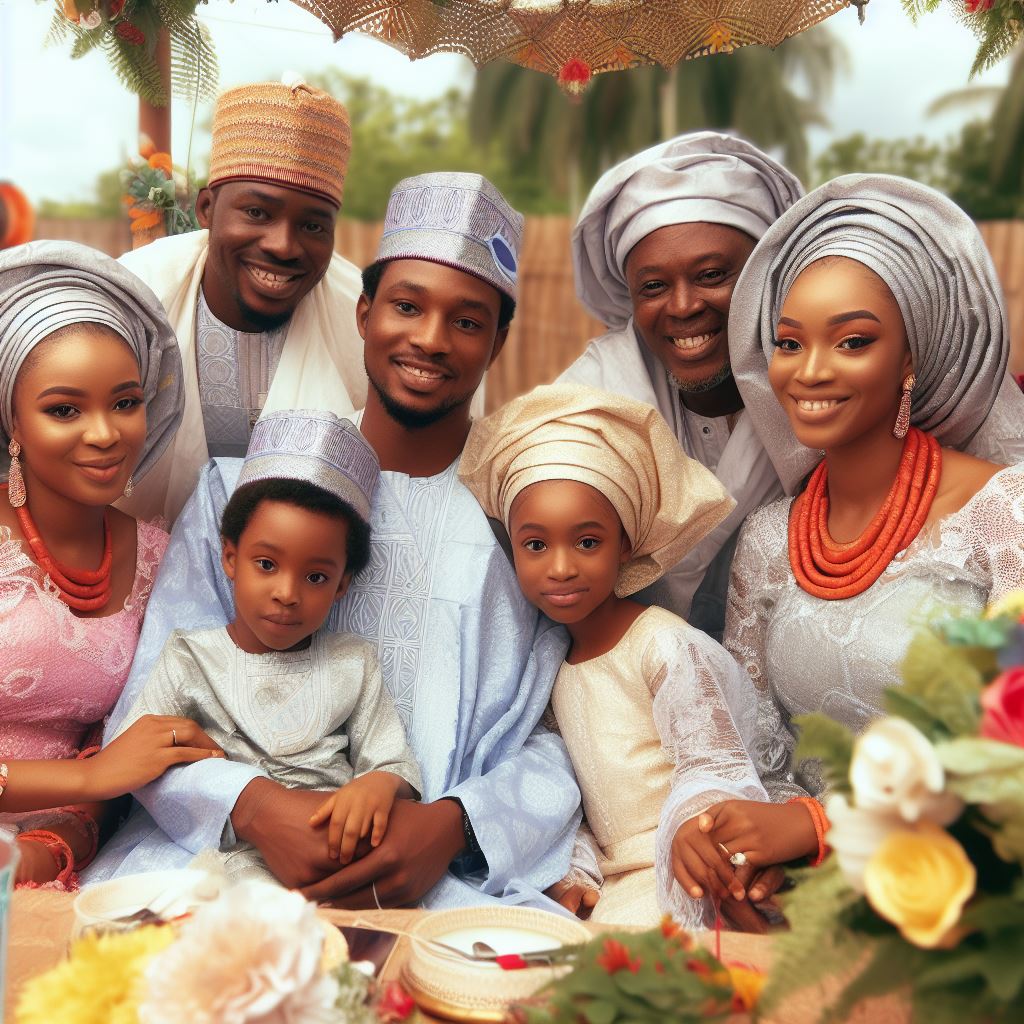
Symbolism and Rituals in Nigerian Marriage Forms
A. Traditional Wedding Ceremonies
1. Traditional Attire and Accessories
In Nigerian weddings, traditional attire is not just clothing; it’s a symbol of heritage and identity.
Each ethnic group showcases its unique textiles, patterns, and colors, reflecting the rich cultural diversity of the country.
2. Breaking of Kola Nut and Pouring of Libations
At the heart of Nigerian wedding rituals lies the tradition of breaking the kola nut and pouring libations.
This symbolic act signifies the importance of sharing and unity in marriage.
3. Music, Dance, and Cultural Performances
Nigerian weddings are a celebration of life, and music, dance, and cultural performances play a pivotal role.
The beats of drums, mesmerizing dances, and cultural storytelling entertain and connect guests.
B. Modern Wedding Trends and Cultural Fusion
1. Incorporation of Western Elements
In recent years, Nigerian weddings have seen the incorporation of Western elements.
From white wedding gowns to exchanging wedding rings, these additions reflect the global influence on Nigerian culture.
2. Popularity of Destination Weddings and Pre-Wedding Photoshoots
Nigerians are increasingly opting for destination weddings, combining their cultural heritage with the allure of exotic locations.
Pre-wedding photoshoots have also become a trend, providing couples with memorable moments to cherish.
3. Importance of Preserving Nigerian Cultural Elements
While modernization has brought about changes, it’s vital to preserve Nigerian cultural elements.
Many couples ensure their weddings maintain traditional rituals, from the attire to the breaking of the kola nut, passing these customs to the next generation.
In Nigerian marriage forms, tradition and modernity coexist harmoniously.
The symbolic attire, rituals, and cultural performances infuse each wedding with a profound sense of identity and heritage.
However, as Nigerians embrace modern trends and global influences, the fusion of Western elements, destination weddings, and pre-wedding photoshoots are becoming increasingly popular.
Nonetheless, it is crucial to remember the significance of preserving the rich cultural elements that make Nigerian weddings unique.
By striking a balance between tradition and modernity, Nigerian couples can celebrate their love in a way that honors their heritage while embracing the possibilities of the future.
Read: Nuptial Knots: The Importance of Family in Nigerian Weddings
Conclusion
A. Significance of Marriage Forms
Marriage forms in Nigeria provide a window into the rich tapestry of cultural diversity.
These traditions embody heritage, beliefs, and values. They bridge generations and communities.
B. Appreciation and Preservation
It’s vital to value and safeguard these cultural insights.
By understanding and respecting these practices, we honor our roots and nurture cultural unity.
Let’s celebrate and conserve the timeless wisdom within Nigerian marriage customs.
In the end, Nigerian marriage forms are more than ceremonies; they are living expressions of heritage and identity.
Embracing and preserving these traditions ensures the continuity of our cultural legacy, fostering unity and understanding.

